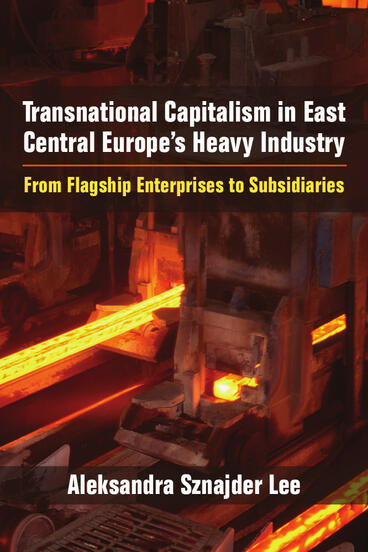Transnational Capitalism in East Central Europe's Heavy Industry
From Flagship Enterprises to Subsidiaries
An examination of the post-communism reform of state enterprises that reveals the political dynamics of privatization
Description
Focusing on the steel industry during the post-communist transition from 1989 through 2009, Aleksandra Sznajder Lee traces the transformation of flagship state enterprises in the Czech Republic, Poland, Romania, and Slovakia into the subsidiaries of large, international corporations. By analyzing this transformation at the three levels of enterprise, sector, and national-international nexus, she identifies the players—from international investors and European Union members to national labor unions and local industry managers—in the political economy of reform. Even in the midst of the transition to a capitalist, democratic system, Sznajder Lee finds, the state plays a key role in mediating between domestic vested interests and external pressures from international financial markets and institutions, on the one hand, and regional institutions on the other. Whereas state power may be employed to require domestic firms to operate as capitalists in the international market, it may also be used to shield enterprises from market pressures in order to promote the political and personal preferences of the elite.
This book has broad implications for the political economy of reform because it illuminates the political determinants of privatization and the resources used to resist it. In addition, Sznajder Lee sheds new light on why some countries are more likely than others to be subject to external constraints, such as IMF conditionality, and how some allegedly pro-market reformers manage to maintain public ownership over certain industry sectors.
Aleksandra Sznajder Lee is Associate Professor of Political Science at the University of Richmond.
Reviews
“Transnational Capitalism makes a groundbreaking contribution to the lively debate on how communist legacies have shaped both political and economic changes after 1989—and how these legacies have interacted with a variety of external actors....”
—Milada Vachudova, University of North Carolina at Chapel Hill
"A valuable resource for those wanting to understand better the historical record of heavy industry’s restructuring in the region.”
—Hilary Appel, Claremont McKenna College

